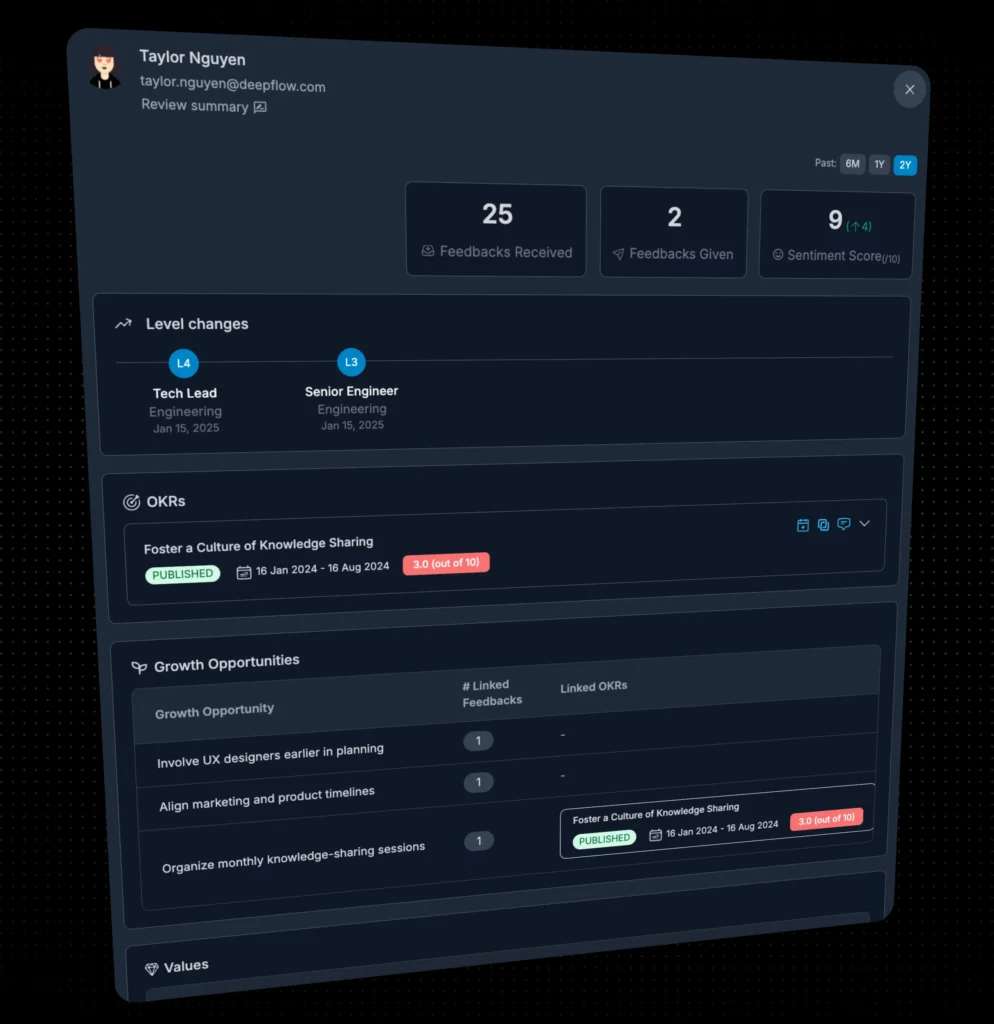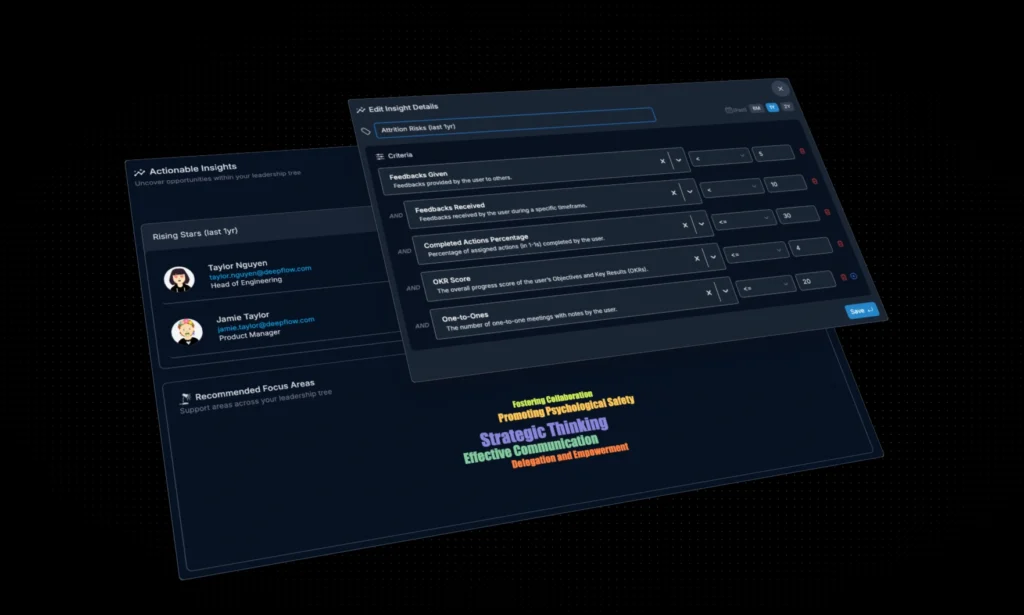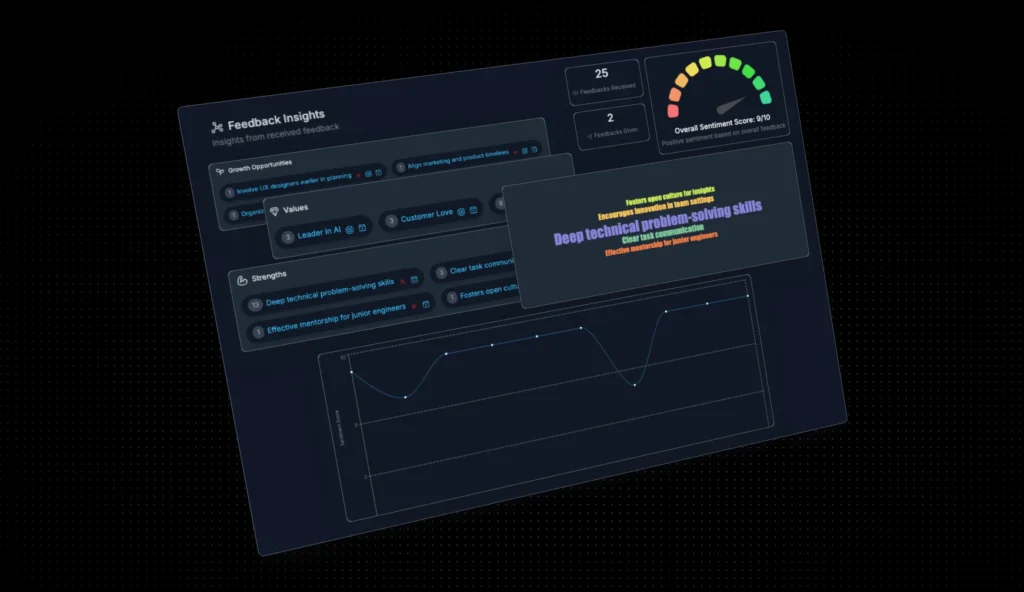What recency bias really costs
Recency bias is a cognitive shortcut that favors recent events over the bigger picture. It’s great for remembering the last episode of your favorite show, but not so much when it’s shaping career development decisions.
Imagine this: an employee lands a high-profile project right before review season and gets promoted, while another, who’s been delivering consistent results year-round, gets overlooked. Over time, these patterns lead to:
- Decreased trust in leadership: Employees question whether promotions are based on merit or timing.
- Erosion of morale: Long-term contributors feel undervalued, leading to disengagement.
- Higher turnover rates: Top performers leave for organizations where their efforts will be seen and rewarded.
In short, recency bias makes organizations less fair, less trusted, and ultimately, less competitive.
Why data is the antidote to bias
Data doesn’t have feelings—it just tells the story as it is. And that’s exactly why it’s so powerful in transforming career development. When performance data spans an employee’s entire tenure, promotions become about overall contribution, not fleeting impressions.
Take this example: instead of relying on subjective evaluations, an organization collects data on key performance indicators like productivity, collaboration, and leadership over time. With this information, managers can:
- Spot patterns: Identify consistent performers who might otherwise fly under the radar.
- Build trust: Show employees that decisions are objective and backed by evidence.
- Make better decisions: Avoid the pitfalls of gut instinct and recency-driven judgment.
When employees see their achievements fairly reflected in data, they’re more likely to trust the system, stay engaged, and remain loyal to the organization.

Steps to build a data-driven promotion system
Creating a fair and data-driven system isn’t rocket science, but it does require intention. Here’s how to start:
- Define what matters
Establish clear performance metrics that cover all dimensions of an employee’s role—think productivity, innovation, teamwork, and leadership. - Invest in the right tools
Use platforms that can track, analyze, and visualize performance data across time. Bonus points if the tools integrate with systems you’re already using. - Train your managers
Data is only as good as its interpretation. Equip managers with the skills to analyze performance metrics and make unbiased decisions. - Refine regularly
Conduct periodic audits to ensure metrics remain relevant and adapt them to evolving business needs. This keeps the system fair and future-proof.

The future of data in career development
As technology advances, data’s role in career development will only grow. Imagine a system where artificial intelligence identifies patterns in performance metrics, suggests career paths, and predicts future success.
We’re already seeing glimpses of this with AI-driven tools that combine employee feedback, sentiment analysis, and performance data. These technologies give a holistic view of an employee’s impact, helping organizations make smarter, fairer decisions.
And the future doesn’t stop at fairness. Personalized career development plans, built on data insights, will empower employees to understand their strengths, improve where needed, and chart clear paths to growth. This isn’t just good for employees—it’s a competitive advantage for companies that want to attract and retain the best talent.

Building a fairer future, one promotion at a time
Career development should never feel like a game of chance. By moving from gut instinct to data-driven fairness, companies can create a workplace where everyone’s contributions are recognized—and rewarded—over the long term.
Recency bias may have had its time, but the future belongs to organizations that let data guide decisions. After all, when employees know their hard work isn’t just seen but valued, they’re more likely to give their best. And that’s a win for everyone.

